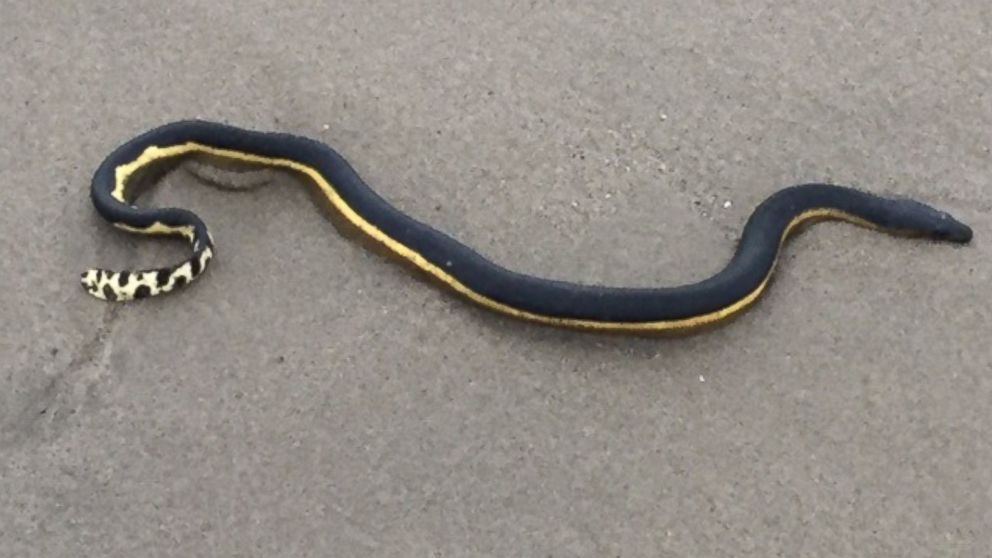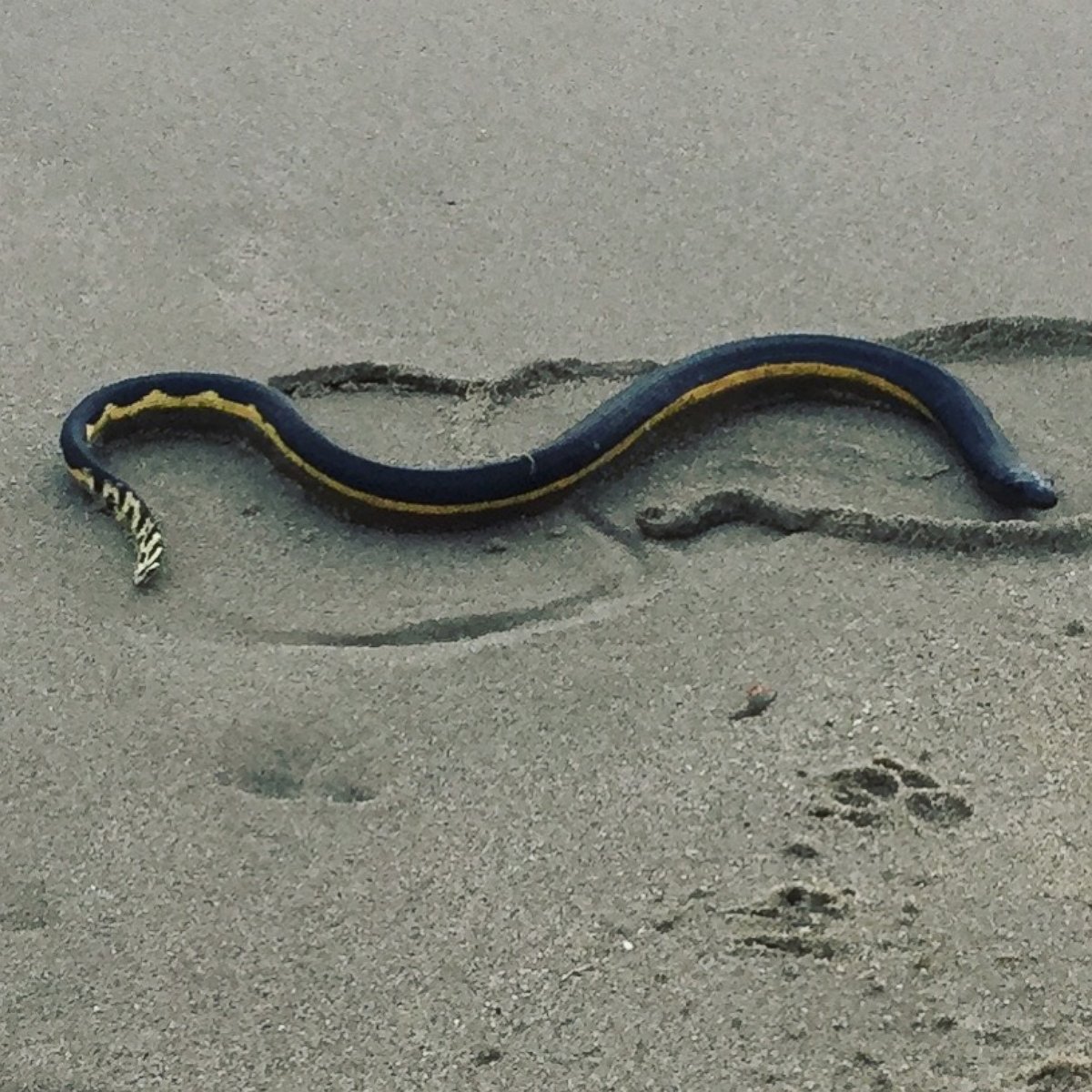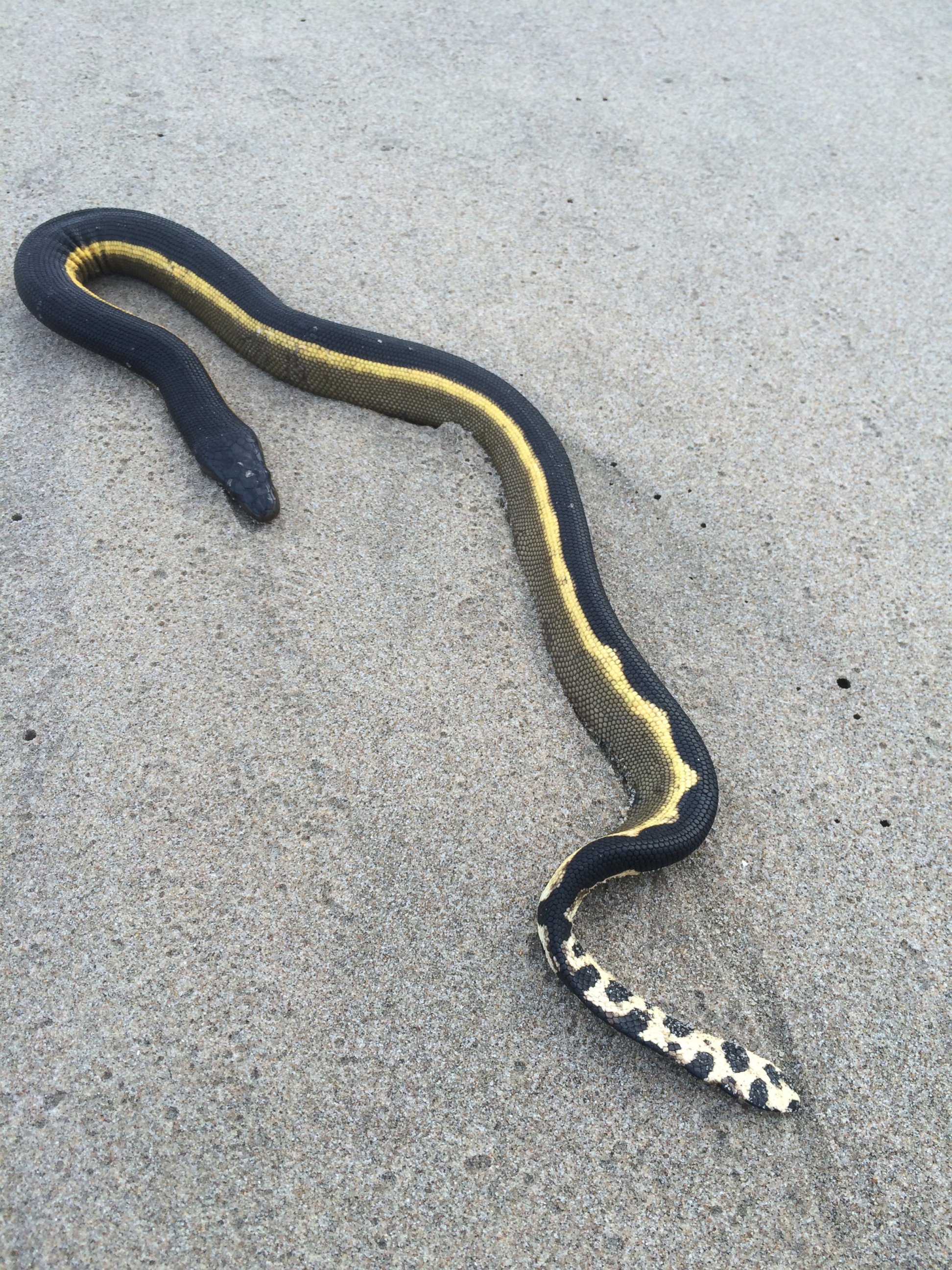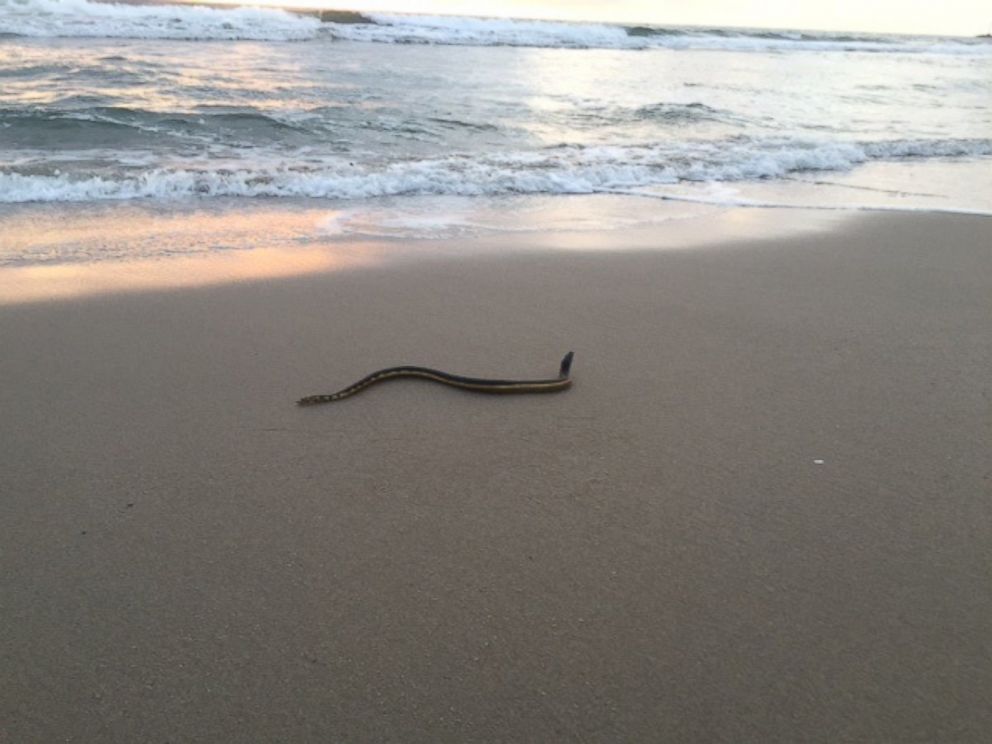Venomous Yellow-Bellied Sea Snake Washes Up on SoCal Shore

— -- At least two beach-goers near Oxnard in Southern California saw a highly venomous yellow-bellied sea snake wash up on shore this week. While that snake was ill and has since died, more water-dwelling snakes like this one may be nearby, an expert said.
Anna Iker told ABC News she and her family were out on the beach Thursday evening when a woman warned her about a snake. They found it trying to get back to the ocean, so they googled it and discovered it was the venomous, water-living yellow-bellied sea snake, she said.
Iker said they were shocked, and stayed with the animal until it got washed back in the sea.

Then Friday morning, Bob Forbes saw the snake on the beach in Oxnard, he told ABC News today.
Greg Pauly, Assistant Curator of Herpetology at the Natural History Museum of Los Angeles County, told ABC News it was almost certainly the same snake Iker saw the night before.
The snake was about 2 feet long and was dark brown on the top with a yellow streak on the side, Forbes said.

"I didn't want some young kid not knowing what it was ... pick it up and possibly get injured," Forbes said, so he put it in a bucket with water and brought it to his home, and "made sure people were safe from it."
Forbes called several agencies to come pick the animal up, but by the time Pauly of the Natural History Museum drove up to Oxnard Friday afternoon, the snake had died.
Pauly, who said this particular snake had been ill, said he immediately could tell it was the yellow-bellied sea snake, and he brought the animal back to the Natural History Museum to preserve it.
Pauly said this is the northern-most record for the Pacific Coast of North America for this snake to be found.
But, the record isn't a big surprise.
Yellow-bellied sea snakes live in warm, tropical waters around the world. Usually the Pacific Ocean is too cold, but El Nino years like this one that bring warm water to the Pacific, give a much greater chance for the yellow-bellied sea snake to surface.
"We were expecting this," Pauly told ABC News. "It's a rare event, but it was also somewhat predictable given that we are currently experiencing a fairly dramatic El Nino year."

Pauly said there are likely to be more of the yellow-bellied sea snakes off the California coast right now "enjoying the warmer water" and there's a good chance a surfer or fisherman may come across another one.
In the event another beachgoer stumbles upon the venomous animal, Pauly gave some words of advice: They are highly venomous, but they are not a significant threat to people, he said, explaining that most bites to humans occur because the person is handling the snake.
The snake's venom works by shutting down the nervous system, but he said it is "incredibly rare" for a human to get a lethal dose, because the yellow-bellied sea snake's mouth is so small, and the snake's typical target is small fish.
He said it is rare
Nevertheless, if people see the snake, they should stay at a safe distance, Pauly said, and take a few photos to document the interesting find.



